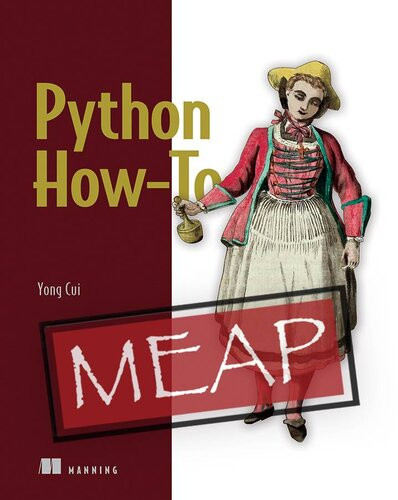Product desciption
Python Howto Seventh Yong Cui by Yong Cui 1000000007 instant download after payment.
Written in 1933 by Arthur Kallet and F.J. Schlink, 100,000,000 Guinea Pigs: Dangers in Everyday Foods, Drugs, and Cosmetics recounts how the United States had been turned into one giant experiment for producers and manufacturers at the expense of the consumer — “This book is written in the interest of the consumer, who does not yet realize that he is being used as a guinea pig.”
Both Kallet and Schlink were pioneering forces behind the consumer product testing agency, Consumers’ Research, Inc., which focused on providing transparency of products for consumers.
This highly influential book prompted the FDA to put on an exhibit to prompt a new and more effective law than Wiley’s 1906 Pure Food and Drug Act. This exhibit was later dubbed by a reporter as the “American Chamber of Horrors.”
Though the Pure Food and Drug Act of 1906 was a victory for Wiley and his poison squad, if not properly enforced, the law was rather ineffective as Kallet and Schlink point out: “The Federal Food and Drug Act prohibits false labeling of drugs shipped across state lines; but if no claims are made on the label, if the ingredients are not stated on the label, the Act does not apply.” Manufacturers were also not required to prove that the substances that they use in their products are safe for use or consumption, therefore, many manufacturers were careless with what they included in their products.
According to The New York Times review of the book, due to the lack of laws, if a manufacturer’s product caused any significant health problems, the worst that would happen would be the manufacturer would have to maybe pay a small fine.
The interesting aspect of this exposé is that Kallet and Schlink put the value of the consumers’ lives into quantifiable values. They valued every consumer’s life at the value of $500 a year. Collectively, with taking into account that value of $500 per year, the manufacturers who care very little about the safety of their products cost the United States 625,000,000 years of life due to too-early deaths, equating to $300 billion, which is almost $6 trillion in today’s dollar value.
The two authors also break down how ill-equipped the FDA was to adequately uphold the Food and Drug Act of 1906. With only sixty-five inspectors, the FDA was responsible for inspecting about $20 billion worth of food and drugs ($400 billion today): that equates to one inspector responsible for about $308 million worth of food and drugs.
100,000,000 Guinea Pigs played an important role in the history of American food policy because it, once again, renewed the resistance towards adulterated food products, mislabeling of products, and the practices of manufacturers that occur at the expense of the consumers. This book, along with other factors, prompted Senator Royal S. Copeland of New York to introduce a new bill that would amend the Pure Food and Drug Act of 1906, leading to another layer of protection for consumers.


